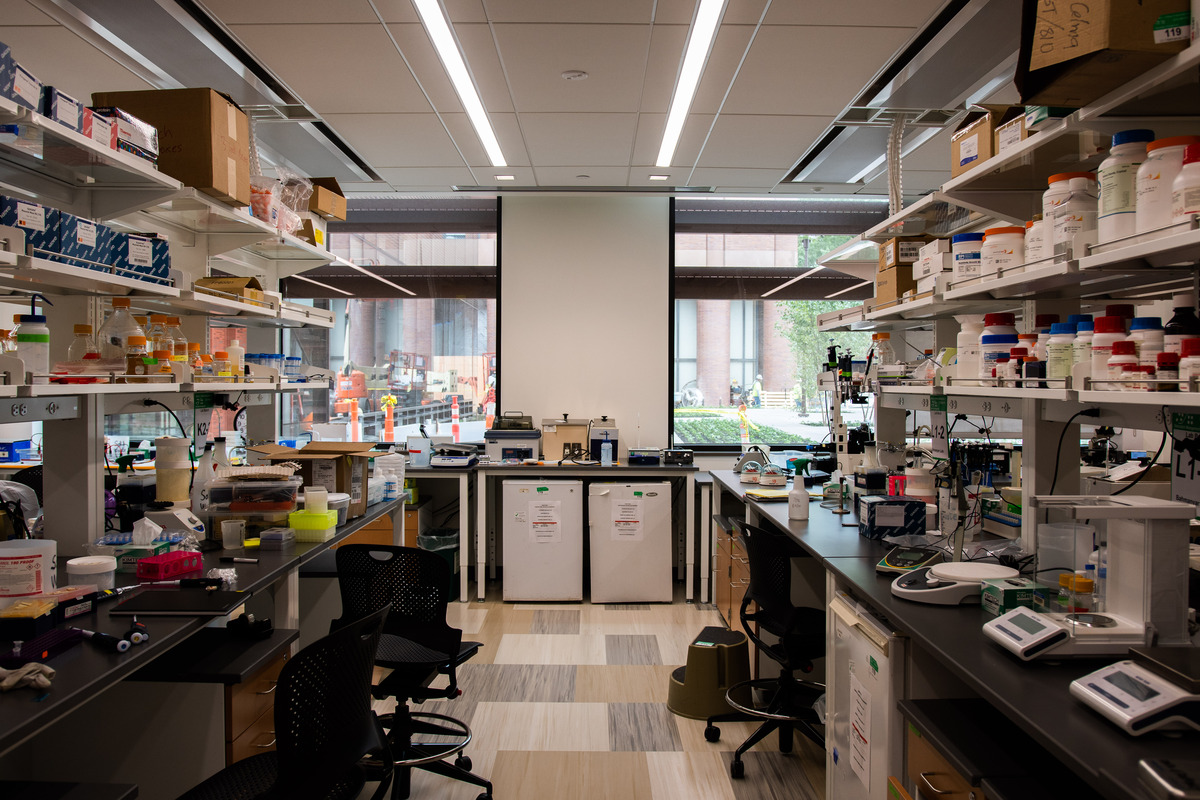Yale Biological and Biomedical Sciences Diversity and Inclusion Collective expands outreach programs
The YBDIC outreach branch has developed four new programs within the last year, hoping to foster educational inclusion in New Haven and beyond.

Lukas Flippo, Senior Photographer
The Yale Biological and Biomedical Sciences Diversity and Inclusion Collective has launched a slate of outreach initiatives to connect students from community colleges with potential mentors and promote the success of underrepresented minorities in STEM fields.
Over the past year,Paola Figueroa-DelgadoGRD ’24, outreach chair of the YBDIC, has introduced two mentorship programs — a Program to Advance Training in Health and Sciences and the YBDIC Mentorship Program. She has also started two lecture series — the Biological and Biomedical Sciences e-Lecture Series and the Science Communication Series — with the goal of increasing educational equity and accessibility. Figueroa-Delgado said she initiated the projects to provide individualized guidance and empowerment for marginalized students.
“Our programs are ways for us to build community and tell people that their stories matter, that they belong,” said Termara Parker GRD ’22, director of the Yale Biological and Biomedical Sciences Diversity and Inclusion Collective. “Outreach embodies the YBDIC for undergrads and postgrads, because through it we are empowering, advancing and engaging them.”
The PATHS collaborative program provides community college undergraduates and postgraduates with Yale mentors from historically underserved communities.
The students are separated into early and late career stage groups, which determines the trajectory of their mentorship. In the early stage group, three students meet with one mentor and participate in topic-based discussions. Together, the students and their mentor navigate conversations about applications, coursework and coping with failure. In the late stage group, participants receive individual guidance from mentors about internship and graduate program application processes.
“We thought as a collection of students in the Yale School of Biological and Biomedical Sciences that we could best provide mentorship and resources for students who are currently in the same position we were as undergraduates trying to chart their path through their STEM education and overall advancement in their careers,” said former YBDIC outreach fellowIan GonzalezGRD ’23.
The YBDIC Mentorship program also paired 76 community college undergraduates and postgraduates from across the U.S. with Yale graduate student and postdoctoral mentors.
The program’s primary purpose is to support participants during liminal stages in their educational careers, such as undergraduates transferring to a four-year institution or postgraduates entering graduate school. The program primarily serves students from historically underrepresented backgrounds.
“We wanted to make sure that in the transferring period they would have someone to rely on and have a community to guide them,” Figueroa-Delgado said. “Mainly because it’s a commonality for historically excluded people in the sciences to experience a feeling of isolation when they can’t identify a community. So we wanted to make sure that they had someone with their best interests at heart in that process.”
The individualized, interpersonal nature of these mentorship programs is key, according to Figueroa-Delgado. She said that, particularly at institutions like Yale, resources can and often do abound, but without the necessary structure, as student needs are mutable and exact. Her solution is an ongoing process of tailoring the YBDIC programs.
To accomplish this, Figueroa-Delgado regularly meets with administrators from community colleges and other Connecticut institutions to discuss their students’ changing needs and how best to serve them. Whether it be through fireside chats, mentorship programs or other educational resources, her end goal is to individually empower marginalized students and reaffirm their excellence, she said.
“We try to make sure that the resources we have available are tailored to service the people we say we’re servicing,” Figueroa-Delgado said. “Not just what we assume, but what we can identify and learn that our community needs. The important thing is actually investing in these individuals and communities. Investing in the individuals by providing them the tools and knowledge they need and seeing them through longitudinally.”
In early 2021, YBDIC outreach set up two lecture series. The Science Communication Series, which ran from February to June, equipped students with science communication skills through different forms of media. It culminated in Science Communication Week, during which the YBDIC featured a host of external speakers including Michael Hopkins, the founder of Black Scientists Matter.
The Biological and Biomedical Sciences e-Lecture Series, introduced in February, features University science faculty who pursued nontraditional career paths. They present their personal journeys in science alongside their current research. The series is available to the public, providing an avenue for students to identify and interact with potential mentors.
“There may be students currently in Hawaii or California who still want research experiences with Yale, so our goal was to dismantle roadblocks for them,” Parker said. “We specifically got speakers who can be possible mentors.”
The BBS e-Lecture Series resumes on Oct. 4, featuring medicine professor Rachel Perry ’08 GRD ’13.







